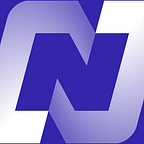Why are Decentralized Communities Better at Determining Fair Market Value
Wow, what a week it has been! The stock market decided that this would be a great week to take a walk on the wild side and gave us not one, but two all-time sagas to go down in history.
For the uninitiated, Redditors decided to take matters into their own hand and beat the hedge funds in their own market manipulation ways. Here’s a quick primer for all those that are interested. The craziness that we all saw this week has only added more fuel to the fire on the importance of decentralizing the financial world and taking authority away from traditional governing bodies(eg. Banks and government).
So that begs the question — how could decentralize finance have helped the situation? Well, before we fully dive into that, let us do a quick review on just what is finance in the first place?
According to Wikipedia, [finance] deals with the questions of how and why an individual, company or government acquires the money needed — called capital in the company context — and how they spend or invest that money. From the government standpoint, gold has been traditionally been the peg that tied finance together as a determinant of value. Those that are involved in the finance industry are entities which deal in the circulation and price negotiation of money, usually led by banks, securities or insurance companies. In simpler terms, finance is all activities that involve currencies, financial assets with their accompanied behaviors.
Typically these financial behaviors are provided through large scale, heavily centralized institutions approved by governments. As such, they are permitted to provide capital lending, currency, equity and the delivery of asset transactions and derivatives. Most popularly, banks are usually the ones that provide all the services listed above.
But as entities are beholden to the government, they are tied to strict adherence to rules and regulations set forth by biased parties. In comparison, the world of decentralized finance can provide much of the same services including lending, transactions, and a robust derivatives market further buoyed by differences in three key areas: participation, governance and distribution.
Participation
Financial transactions in DeFi are not dependent on any intermediary to facilitate the “matching” of two parties in order to transact. Rather, counter parties come together based on trust and reputation all activities are accessible on a public ledger. The nature of decentralization and smart contracts allows for interested parties to conduct transactions at any time of day, whether it be on a weekend, weeknight or when the kids are asleep. Applications built on decentralized protocols aggregate a wide range of resources without the need for third party intermediaries to conduct credit endorsements, lessening the restrictions and influence as a result of credit bureaus. In comparison, most traditional lending still requires centralized institutions to carry out banking services such as lending of monetary funds, debt and equity investments, financing through securities firms and investment services. One could argue that centralized institutions were created to protect the common folk, but we’ve seen them become vehicles to prohibit participation from a wider user base, as was the case with Robinhood.
Governance
In traditional finance, we rely on an authoritative institution to approve actions and monitor for “do no evil” situations in order to preserve the credibility of the overall market. In DeFi, the market is open source and DAO(decentralized autonomous organizations) driven, represented by code that is transparent, controlled by the organization members and not influenced by a central government. As smart contracts are immutable, they are immune to corruption and bias as so many centralized institutions have become. Relevant governance systems and finance can be inquired through public information as to protect the rights and interests of decentralized participants.
Distribution
Most financial intermediaries are setup for the purpose of making profits and operate with the mantra of maximizing shareholder value. Only investors or the operators of these intermediaries are able to obtain the outsized returns that are promised. Whereas the rest of us are only given 0.5% APR yields in a savings account. Pretty raw deal if you ask me.
In DeFi, the distribution of benefits and community governance are based on holders of tokens, which are open to individuals of all investment profiles and appetite. These tokens grant access and allow for participation in returns that are generated from multiple avenues of a protocol’s lifecycle. Whereas in traditional finance, entry into investments vary widely based on an individual’s net worth(accredited investing), network(hedge fund) and access(Robinhood’s decision to halt trading of GameStop stocks).
It is fair to think that the GameStop and Robinhood saga serves as a first sign that the free market isn’t as free as we once thought. A strong and unified community has demonstrated that they can impact and move entire markets, whereas powers that be, only want to take that capability away. Trustless and permissionless communities are the wave of the future and we at NAOS Finance seek to be at the epicenter of this movement.
We believe in easy and immutable access to assets of all profiles, risks and sizes. Allowing investors from all facets of the world to participate in however they want.
About NAOS Finance
NAOS Finance is a DeFi lending protocol allowing lenders and SME borrowers to facilitate permissionless and borderless loaning/borrowing transactions on the blockchain. Built on Ethereum, our platform lets users tokenize real-world assets and subsequent lending.
We operate compliantly and legally in top markets around the globe, maintaining safety as a top priority and fostering enhanced trust in the lending/borrowing process.
To remain informed on everything about our project, be sure to visit our website and join the family by following our social media platforms:
Website | Whitepaper | Telegram Announcements Channel | Telegram Community | Discord | Twitter
